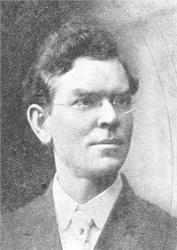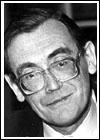Planning worship?
Check out our sister site, ZeteoSearch.org,
for 20+ additional resources related to your search.
- |
User Links
Person Results
Rory Cooney
b. 1952 Person Name: Rory Cooney, b. 1952 Author of "The Trumpet in the Morning" in RitualSong (2nd ed.)
Rory Cooney
Miriam Therese Winter
b. 1938 Author (St. 2-4) of "How Beautiful, Our Spacious Skies" in The New Century Hymnal
Miriam Therese Winter
Carolina Sandell

1823 - 1903 Person Name: Caroline V. S. Berg Author of "Children of the Heavenly Father" in Voices Together Caroline W. Sandell Berg (b. Froderyd, Sweden, 1832; d. Stockholm, Sweden, 1903), is better known as Lina Sandell, the "Fanny Crosby of Sweden."
"Lina" Wilhelmina Sandell Berg was the daughter of a Lutheran pastor to whom she was very close; she wrote hymns partly to cope with the fact that she witnessed his tragic death by drowning. Many of her 650 hymns were used in the revival services of Carl O. Rosenius, and a number of them gained popularity particularly because of the musical settings written by gospel singer Oskar Ahnfelt. Jenny Lind, the famous Swedish soprano, underwrote the cost of publishing a collection of Ahnfelt's music, Andeliga Sänger (1850), which consisted mainly of Berg's hymn texts.
Bert Polman
Carolina Sandell
Shirley Erena Murray
1931 - 2020 Author of "Here to the House of God We Come" in Voices Together Shirley Erena Murray (b. Invercargill, New Zealand, 1931) studied music as an undergraduate but received a master’s degree (with honors) in classics and French from Otago University. Her upbringing was Methodist, but she became a Presbyterian when she married the Reverend John Stewart Murray, who was a moderator of the Presbyterian Church of New Zealand. Shirley began her career as a teacher of languages, but she became more active in Amnesty International, and for eight years she served the Labor Party Research Unit of Parliament. Her involvement in these organizations has enriched her writing of hymns, which address human rights, women’s concerns, justice, peace, the integrity of creation, and the unity of the church. Many of her hymns have been performed in CCA and WCC assemblies. In recognition for her service as a writer of hymns, the New Zealand government honored her as a Member of the New Zealand Order of Merit on the Queen’s birthday on 3 June 2001. Through Hope Publishing House, Murray has published three collections of her hymns: In Every Corner Sing (eighty-four hymns, 1992), Everyday in Your Spirit (forty-one hymns, 1996), and Faith Makes the Song (fifty hymns, 2002). The New Zealand Hymnbook Trust, for which she worked for a long time, has also published many of her texts (cf. back cover, Faith Makes the Song). In 2009, Otaga University conferred on her an honorary doctorate in literature for her contribution to the art of hymn writing.
I-to Loh, Hymnal Companion to “Sound the Bamboo”: Asian Hymns in Their Cultural and Liturgical Context, p. 468, ©2011 GIA Publications, Inc., Chicago
Shirley Erena Murray
Katharine Lee Bates

1859 - 1929 Author (St. 1) of "How Beautiful, Our Spacious Skies" in The New Century Hymnal Katharine Lee Bates was born in Falmouth, Mass., August 12, 1859. Her father was a pastor in the Congregational Church; he died when she was an infant. Her mother moved the family to Wellesley. She received a B.A. (1880) and M.A. (1891) from Wellesley College. She taught high school from 1880-1885 and then was a professor of English literature at Wellesley. She wrote poetry, children's stories, textbooks and travel books. In the summer if 1893 when she was lecturing at Colorado College she went to the top of Pike's Peak. Inspired by the beauty of the view she wrote all four verses of "America the Beautiful" which was an instant hit when it was published. She had an intimate relationship with Katharine Coman, dean of Wellesley, who she lived with for 25 years, until Coman's death. "Yellow Clover: A Book of Remembrance" celebrates their love and partnership.She enjoyed traveling, the out of doors, reading and friends,
Dianne Shapiro from Woman's Who's who in America, 1914-1915 by John William Leonard, New York: The American Commonwealth Company and Harvard Square Library, Digital Library of Unitarian Universalist Biographies, History, Books and Media (http://harvardsquarelibrary.org/cambridge-harvard/katharine-lee-bates/) (accessed 7-4-2018
Katharine Lee Bates
Graham Kendrick

b. 1950 Author of "Beauty for Brokenness" in Voices Together Graham Kendrick (b. England, August 2, 1950), the son of a Baptist minister in Northamptonshire, is one of the most prolific Christian singer-songwriters in the United Kingdom. He’s written music for over thirty years, and to date has released thirty-eight albums. He is best known for his songs “Shine, Jesus, Shine,” “Knowing You,” and “The Servant King.” Kendrick has received honorary doctorates in divinity from Brunel University and Wycliffe College. In 1987 he helped co-found the March for Jesus, which today is a global phenomenon in which Christians take their faith to the streets in a celebration of Christ. In 1995 Kendrick received a Dove Award for his international work, and he remains an active advocate for Compassion International, which is a Christian child sponsorship organization dedicated to the long-term development of children living in poverty around the world, and also is a contributor to CompassionArt, an organization with the aim of generating income from works of art to assist in the relief of suffering around the planet.
Laura de Jong
Graham Kendrick
John L. Bell
b. 1949 Author of "If the War Goes On" in Voices Together John Bell (b. 1949) was born in the Scottish town of Kilmarnock in Ayrshire, intending to be a music teacher when he felt the call to the ministry. But in frustration with his classes, he did volunteer work in a deprived neighborhood in London for a time and also served for two years as an associate pastor at the English Reformed Church in Amsterdam. After graduating he worked for five years as a youth pastor for the Church of Scotland, serving a large region that included about 500 churches. He then took a similar position with the Iona Community, and with his colleague Graham Maule, began to broaden the youth ministry to focus on renewal of the church’s worship. His approach soon turned to composing songs within the identifiable traditions of hymnody that began to address concerns missing from the current Scottish hymnal:
"I discovered that seldom did our hymns represent the plight of poor people to God. There was nothing that dealt with unemployment, nothing that dealt with living in a multicultural society and feeling disenfranchised. There was nothing about child abuse…,that reflected concern for the developing world, nothing that helped see ourselves as brothers and sisters to those who are suffering from poverty or persecution." [from an interview in Reformed Worship (March 1993)]
That concern not only led to writing many songs, but increasingly to introducing them internationally in many conferences, while also gathering songs from around the world. He was convener for the fourth edition of the Church of Scotland’s Church Hymnary (2005), a very different collection from the previous 1973 edition. His books, The Singing Thing and The Singing Thing Too, as well as the many collections of songs and worship resources produced by John Bell—some together with other members of the Iona Community’s “Wild Goose Resource Group,” —are available in North America from GIA Publications.
Emily Brink
John L. Bell
Ernst W. Olson

1870 - 1958 Translator of "Children of the Heavenly Father" in Voices Together Ernst W. Olson (b. Skane, Sweden, 1870; d. Chicago, IL, 1958) prepared the English translation for the 1925 Hymnal of the Lutheran Augustana Synod. As editor, writer, poet, and translator, Olson made a valuable contribution to Swedish-American culture and to church music. His family immigrated to Nebraska when he was five years old, but he spent much of his life in the Chicago area. Educated at Augustana College, Rock Island, Illinois, he was editor of several Swedish-American newspapers and spent most of his professional career as an editor for the Augustana Book Concern (1911-1949). Olson wrote History of the Swedes in Illinois (1908). He also contributed four original hymns and twenty-eight translations to The Hymnal (1925) of the Evangelical Lutheran Augustana Synod and served on the committee that produced the Lutheran Service Book and Hymnal (1958).
Bert Polman
Ernst W. Olson
Ralph Vaughan Williams

1872 - 1958 Composer of "KING’S WESTON" in Voices Together Through his composing, conducting, collecting, editing, and teaching, Ralph Vaughan Williams (b. Down Ampney, Gloucestershire, England, October 12, 1872; d. Westminster, London, England, August 26, 1958) became the chief figure in the realm of English music and church music in the first half of the twentieth century. His education included instruction at the Royal College of Music in London and Trinity College, Cambridge, as well as additional studies in Berlin and Paris. During World War I he served in the army medical corps in France. Vaughan Williams taught music at the Royal College of Music (1920-1940), conducted the Bach Choir in London (1920-1927), and directed the Leith Hill Music Festival in Dorking (1905-1953). A major influence in his life was the English folk song. A knowledgeable collector of folk songs, he was also a member of the Folksong Society and a supporter of the English Folk Dance Society. Vaughan Williams wrote various articles and books, including National Music (1935), and composed numerous arrangements of folk songs; many of his compositions show the impact of folk rhythms and melodic modes. His original compositions cover nearly all musical genres, from orchestral symphonies and concertos to choral works, from songs to operas, and from chamber music to music for films. Vaughan Williams's church music includes anthems; choral-orchestral works, such as Magnificat (1932), Dona Nobis Pacem (1936), and Hodie (1953); and hymn tune settings for organ. But most important to the history of hymnody, he was music editor of the most influential British hymnal at the beginning of the twentieth century, The English Hymnal (1906), and coeditor (with Martin Shaw) of Songs of Praise (1925, 1931) and the Oxford Book of Carols (1928).
Bert Polman
Ralph Vaughan Williams
Colin Gibson

b. 1933 Person Name: Colin Alexander Gibson Composer of "KHAO I DANG" in Voices Together Colin Gibson (b. 1933) was born in Dunedin, the south island of New Zealand. He has been writing hymn texts and hymn settings for over 20 years. His works have been published and performed in Africa, the United States, Asia and Australasia, Great Britain and Europe. He is organist and director of the Mornington Methodist Choir, Dunedin, New Zealand, a lay preacher, and retired in 1999 as Head of the Department and Donald Collie Professor of English at the University of Otago where he currently heads the Department of Theatre Studies and continues to lecture on English Literature as Emeritus Professor. He has conducted numerous hymn workshops in New Zealand, Australia and Great Britain, and has been co-editor of a number of hymn collections. His frequent collaboration with Shirley Erena Murray is represented in several Hope publications, and he has his own published collections of hymns: Singing Love (Collins) and more recently Reading the Signature (Hope, 1994 - Code #1753) and Songs for a Rainbow People (Hope, 1998 - Code #8005). Three of his hymns are included in the Hope hymnal Worship & Rejoice (2001).
--www.hopepublishing.com
Colin Gibson


 My Starred Hymns
My Starred Hymns


